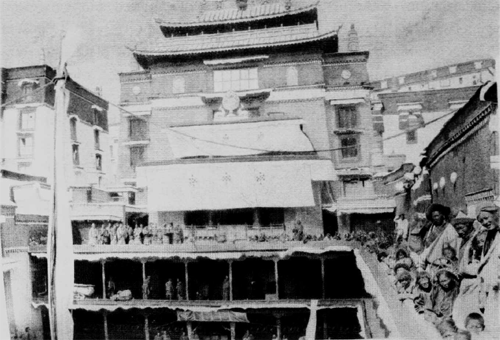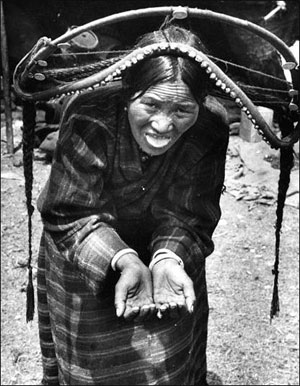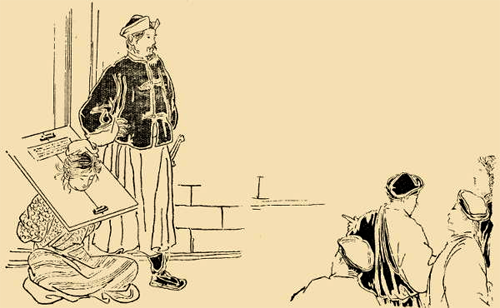-- Tibet and the British Raj, 1904-47: The Influence of the Indian Political Department Officers, by Alexander McKay
-- The Shadow of the Dalai Lama: Sexuality, Magic and Politics in Tibetan Buddhism, by Victor and Victoria Trimondi
-- Buddha's Not Smiling: Uncovering Corruption at the Heart of Tibetan Buddhism Today, by Erik D. Curren
-- The Buddha From Brooklyn, by Martha Sherrill
-- The Myth of Shangri-La: Tibet, Travel Writing and the Western Creation of Sacred Landscape, by Peter Bishop
-- The Other Side of Eden: Life With John Steinbeck, by John Steinbeck IV & Nancy Steinbeck
-- The Mahasiddha and His Idiot Servant, by John Riley Perks
-- Traveller in Space: In Search of Female Identity in Tibetan Buddhism, by June Campbell
-- Oracles and Demons of Tibet: The Cult and Iconography of the Tibetan Protective Deities, by Rene De Nebesky-Wojkowitz
-- Dragon Thunder: My Life with Chogyam Trungpa, by Diana J. Mukpo with Carolyn Rose Gimian
-- The Great Naropa Poetry Wars, by Tom Clark
-- Red Shambhala: Magic, Prophecy, and Geopolitics in the Heart of Asia, by Andrei Znamenski
-- Seven Years in Tibet, by Heinrich Harrer
The guy quoted at the bottom of the page [Mukposdingdong] cries out that “nobody thinks about how people who took the oath to the Sakyong were betrayed by him,” and he doesn’t want to have anything to do with “Buddhists” who don’t feel sorry for all of those betrayed by him. The Shambhala people took oaths like Freemasons and Mafioso, I suppose they were oaths that similarly said, “We will rip out your hearts and guts if you violate this oath, and kill all your relatives and descendants.” If they didn’t say that explicitly, then they meant it implicitly, and every Shambhala person knows it. What else could be the reason for their cowardly attitude when the Sakyong betrays them, that they refuse to betray him back? Oh, they would never do that. They want to protect the betrayer, so he can betray others. That's what's called "virtue". Betrayers never have anything to worry about from the people they betray. They won't say a thing, nothing specific. Only a handful of Shambhala persons, Leslie Hays, and a few women at the Buddhist Sunshine Project, have provided any details of the nasty shit that went on behind the scenes in Shambhala. What’s going on? It must be far nastier than anyone wants to let on. It’s been long enough since it happened, as far as I’m concerned, that it’s been proved that Shambhala people for the most part have absolutely no backbone, no fight, no struggle for existence, they are almost
like Aristotle says “born slaves”! So take note all you white racists: Good white people have been shown to be “born slaves.” Whites can be just as weak and pitiful as any other colored peoples, and probably more so. Not the slightest backbone to fight back at all. They just want to cry and die.
Where are all the secret texts and “teachings” they got all these years? You can’t get your hands on any of them for anything in the world. On Reddit, Charles asked for some brave persons to send him copies, but he’s got nothing. Despite the fact of their mass betrayal, I suppose the Shambhala people still keep their “Great Eastern Sun,” “Scorpion Seal of the Golden Sun,” “Court Vision and Practice,” “Golden Dot,” “Letter of the Black Ashe,” etc., high up on a shelf, to be revered in all these books' betrayal and irreverence until the end of their lives. And then they don’t want to be blamed, and told “they should have known better.”
Well, a lot of people it is true, don’t know better about a lot of things they get betrayed for. But when it comes to secret oaths and teachings, we should know better to get away from organizations that promote this kind of danger. Freemasons and CIA spies, both, and military persons, take an oath of loyalty to organizations before they even know what they’re getting into. What kind of sense does that make? In the CIA, you don’t even get to know who you’re taking orders from, necessarily. Some guy or gal appears out of nowhere, hands you some instructions or money and tells you to do something, and you just do it. You don’t know who he or she is. He or she could be the devil himself, someone impersonating your officer in command, and you’d faithfully go about their business not knowing a damn thing about what you’re doing. For all you know, you’re protecting the terrorists so they can take down the World Trade Center! And Tibetan Buddhists do that all the time too.
Certainly, we should all know better.
Tibetan Buddhism is NOT Buddhism! Yes, we've all been had! There was a giant conspiracy on the part of all the self-deluded lamas and powers of the world to present ancient Tibetan shamanistic religion as "Buddhism." But it was never Buddhism, and it never will be. Tibetans have not the slightest doubt in their crazy self-deluded "Buddhist" culture. Even when they go to the West, and come back to Tibet, they still tremble when Rahula eats the moon at an eclipse. And we didn't do the slightest bit of background checking. How many Tibetan "Buddhists" have read the books about Tibetan "Buddhism" that have come out by various authors over the last 100 years? I know the answer. Hardly any of them. Including myself until I got wise.
SECTION 7.5: - IMAGE - THE MISSING PIECES
We have seen that issues which might reflect badly on the cadre, such as cash payments to influential Tibetans, did not emerge into the public knowledge. There was also a gap between what the cadre themselves knew or believed, and what they divulged, as we have seen with Neame's article, which avoided mentioning both the purpose and the results of his mission. This can also be seen clearly in two cases where Politicals posted to Gyantse formed views which differed significantly from the usual cadre perception. It is significant that neither officer remained in Tibet for more than a few months. They were not therefore, by my definition, accepted members of the Tibet cadre.
The recorded memories of 1933 Gyantse Agent Meredith Worth, suggest an image of Tibet closer to that presented by Communist Chinese sources than to that offered in British sources. Interviewed in 1980, Worth recalled that
My memories are of many cheerful parties in the Fort and in the homes of wealthy families, the dominance and brutality of the Lamas and officials towards the serf population and the prevalence of venereal diseases....It was, therefore, for me a relief to read recently in Han Suyin's book "Lhasa, the Open City" [which promotes a polemically positive view of Communist rule in Tibet] that those conditions no longer exist.[20]
Paul Mainprice confided to his 1944 diary that
I have serious doubts whether Tibet is at all fit for independence and whether the present system of Government should be bolstered up. Would China in control of Tibet really be a very serious menace to India? As we don't seem to do much developing of Tibet, I question whether the Chinese would not be able to do it to our own mutual advantage. Of course the Tibetan aristocracy and officials would not like it, but the peasants preferred the Chinese regime in Eastern Tibet in the early years of this century. [21]
Neither Worth nor Mainprice appear to have expressed these views publicly during their imperial service. They were doubtless aware that views diametrically opposed to those of their superiors would be censored, and were unlikely to advance their careers. This must have acted as an incentive to self-censorship. As a result, the dominant image of Tibet was not affected by alternative views, even those of members of the Political Department.
The doubts which Mainprice expressed over British policy in Tibet do reflect a different perspective from that of other cadre officers.
Mainprice 'was always concerned for the underdog'. He was one of the few imperial officers to gain good relations with the Mishmis during service in Assam, and his diaries record his later sympathy and support for the Muslim populace of Kashmir, which led to his being detained and expelled by the new Indian government.[22]
Mainprice's perspective indicates how the emphasis on relations with Tibet's ruling class resulted in a marginalisation of the voice of the majority of Tibetans, those outside ruling circles. Bell was aware that the peasants were often treated 'abominably' and even admitted in his first book that 'There is no doubt some foundation for the Amban's claim that the poorer classes in Tibet were in favour of China.' But Bell's policy of support for the existing Tibetan leadership meant that this perspective was not represented by the British. The condition of the lower classes was heavily criticised on occasion, Macdonald being particularly critical. But a positive image was maintained by attributing misrule to the era of Chinese domination, and describing how conditions were improving under the Dalai Lama's rule. This positive note was enhanced by the constant stress on the overall happiness and contentment of the peasant class, which is a recurrent theme in British accounts of Tibet, where even 'the slavery was of a very mild type'. [23]
-- Tibet and the British Raj, 1904-47: The Influence of the Indian Political Department Officers, by Alexander McKay
Taking Samaya with Sakyong Mipham and some side thoughts
by mukposdingdong
r/ShambhalaBuddhism
10/4/19
Something reminded me of the vows we took with Mipham recently.
The part I want to share is that when we were being groomed to submit to his command, what was made very clear by the acharyas coaching us and the little piece of paper cheat sheet we were given at Vajrayana seminary, was that we weren’t taking a vow about committing to creating enlightened society but a vow committing to MIPHAM’s vision of creating enlightened society. The difference was reiterated several times. And I guess that’s the basic point of taking a Vajrayana teacher on — you commit to their expertise or method. Literally, his world.
But in the last couple years, I’ve heard so many Shambhalians say things to the effect of, the women he sexually ab/used had the wrong view (they could have said no, or you’re not literally meant to do what the teacher asks, or, he’s just human — you don’t actually view him as the Buddha, or, well actually it’s the guru within, not the external guru that’s important). I’ve also heard non-Mipham students affiliated with Shambhala (mostly Trungpa followers) say things like, what you were doing under mipham is not what is meant by enlightened society, etc — here’s the correct view... (and then they proceed to offer some interpretation, their own conceptualization/variant on the true meaning or intent of “the teachings” or explain vajrayana by importing instructions from another teacher). But the fact is, the samaya vows we as Mipham’s students took, were of and TO HIS vision. We were to defer to HIS discernment about reality, what to do with our minds, how to behave, follow his instructions, INCLUDING the sexual ones. It wasn’t enlightened society general, it was Mipham’s view of enlightened society. And the better you followed, the better student you were considered, rewarded and valuable to have around and near.
I guess I’m sharing this thought because I’ve watched so many sangha members dismiss Mipham in the last couple of years. And in so doing they are side stepping the abuse that all of his students endured BECAUSE they were his students committed to his view. A type of betrayal that those who weren’t his students cannot know because they didn’t commit to him or put their faith in him in the same way if at all. It makes me think that people who weren’t Mipham’s students, who didn’t take that vow with him cannot possibly understand the same betrayal or advise his students because they weren’t viewing him or their paths in the same way. And it seems a lot of the “schisms” I have witnessed — schisming between old Trungpa students (some now with other teachers) or don’t-need-a-guru/king-to-do-Shambhala types and Mipham’s Vajrayana students ride on this difference.
Maybe others feel differently, but part of the betrayal I’ve been feeling from community members (or ex members) is definitely from those trampling over and bypassing the particular betrayal many of Mipham’s Vajrayana students (even if they are no longer his students) have been experiencing. Some old Trungpa students are even doing happy dances he’s been outed but don’t care about his students’ suffering. A lot of, I told you so mentality. But the fact is, we were groomed to take a vow to Mipham’s vision of enlightened society — not yours. It’s no wonder some of us don’t want anything to do with Buddhism anymore — our teacher who we took the highest vows with to do as he said betrayed our trust and the sangha celebrated his misconduct being outed by throwing him under the bus and trying to keep the ship afloat without really relating to what the tradition has done to our lives. Basically, traumatized us by eroding the deepest trust and ab/using our vulnerabilities, showed us the hollowness of all we committed to in this so called tradition, that community doesn’t care about the individuals within it to the point they make it impossible to stay, that friends and family will choose religion or keeping “cool” jargon and unconventional identities or romantic memories of childhood from their upbringings over having each others’ backs.
In a forum elsewhere someone recently said something to the effect of, clergy sexual misconduct is a very bad thing and I take it very seriously and am so sorry, but please don’t take it out on the dharma or Buddhism — I want to keep my own goodies going because the thing that hurt you only hurt you, not me. If that’s really the Buddhist approach or view of relating to ones own and others’ suffering, then why would anyone abused and taken advantage of by mipham and the Shambhala community ever want to hear Buddhist words ever again? Sometimes it’s hard to tolerate your tolerance for Shambhala and your complete inability to see what it’s done to people let alone care. Your comments that you believe are more to the point than Mipham’s because you know best or it works for you, that you have the true or right version, know the point of everyone’s life, suffering and Buddhism are completely a turn off. The arrogance and self-centeredness of people wanting Shambhala to continue sans Mipham (especially those who haven’t even admitted to and related to his betrayal of his students) continues to appall me. If you are taking on the ship, you’re responsible for the harm it caused — doesn’t matter if mipham is king or not.


